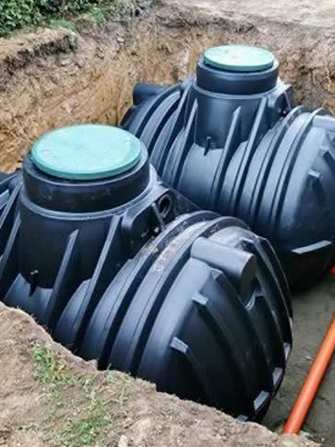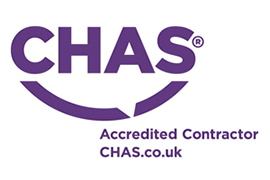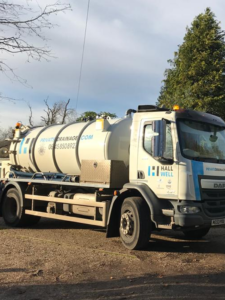If you live in a rural area of the UK, chances are that your home may be connected to a septic tank rather than the main sewer system. A septic tank is a simple, underground system for treating household wastewater, but it is important for homeowners to be aware of the regulations governing septic tanks in order to avoid potential environmental hazards and costly penalties.

In 2015, the UK government introduced new regulations for septic tanks to protect the environment and public health. These regulations apply to both existing and new septic tank systems, and they include requirements for the installation, maintenance, and discharge of septic tanks.
Installation Requirements for New Septic Tank Systems
If you are planning to install a new septic tank system on your property, there are several key requirements that you should be aware of.
Firstly, all new septic tank systems must be registered with the Environment Agency. This involves completing an application form and paying a fee, which is currently £215. Failure to register your septic tank system can result in a fine of up to £5,000.
Secondly, new septic tank systems must comply with certain technical requirements. The septic tank and drainage system must be designed and installed by a competent person, such as a qualified engineer or plumber, and must be constructed according to current British Standards.
The size of the septic tank and drainage field must also be appropriate for the number of people living in the property, and the septic tank must be located at least 7 metres away from any watercourse or surface water drain. In addition, the discharge from the septic tank must be treated to an appropriate standard before it is released into the environment.
Maintenance Requirements for Existing Septic Tank Systems
If you already have a septic tank system on your property, you are also subject to certain maintenance requirements under the new regulations.
All septic tanks must be emptied and cleaned at least once a year, or more frequently if necessary. The sludge and scum that accumulate in the tank over time must be removed by a licensed waste carrier and taken to an authorized treatment facility.
In addition, any faults or defects in the septic tank or drainage field must be repaired as soon as possible. If you suspect that your septic tank system is not working properly, you should contact a qualified professional to carry out an inspection and make any necessary repairs.
Discharge Requirements for Septic Tank Systems
Perhaps the most important aspect of the new septic tank regulations is the requirement for all septic tank systems to discharge their treated effluent to ground via a drainage field, rather than directly to a watercourse or surface water drain.
This requirement is designed to prevent pollution of watercourses and protect the environment. If you currently have a septic tank system that discharges directly to a watercourse, you will need to upgrade your system to comply with the new regulations by January 1st, 2020.
Upgrading your septic tank system may involve installing a drainage field, or connecting your system to the main sewer network if this is a viable option. If neither of these options is feasible, you may need to install a sewage treatment plant to treat your effluent to the required standard before discharging it to a watercourse.
Penalties for Non-Compliance with Septic Tank Regulations
Non-compliance with the new septic tank regulations can result in significant penalties, both financial and environmental. If you fail to register your septic tank system, you could face a fine of up to £5,000, and you may be required to take corrective action to bring your system into compliance.
If your septic tank system causes pollution of a watercourse or other environmental harm, you could be fined.
Chose Hallwell for drainage services in Essex, Hertfordshire and Surrey
Hallwell provides drainage services in Essex, Hertfordshire, Essex and Surrey. Call Hallwell today to discuss how to make sure you are compliant with these regulations.









